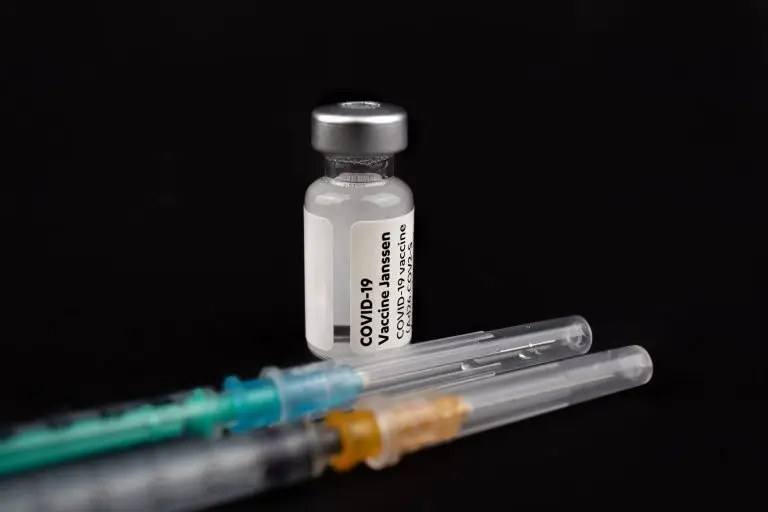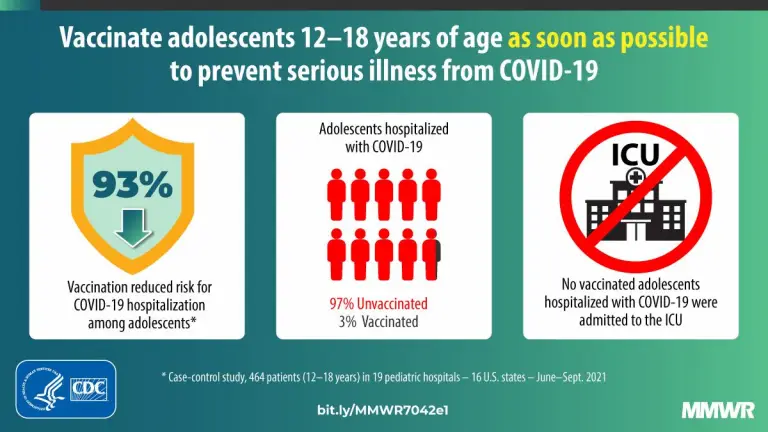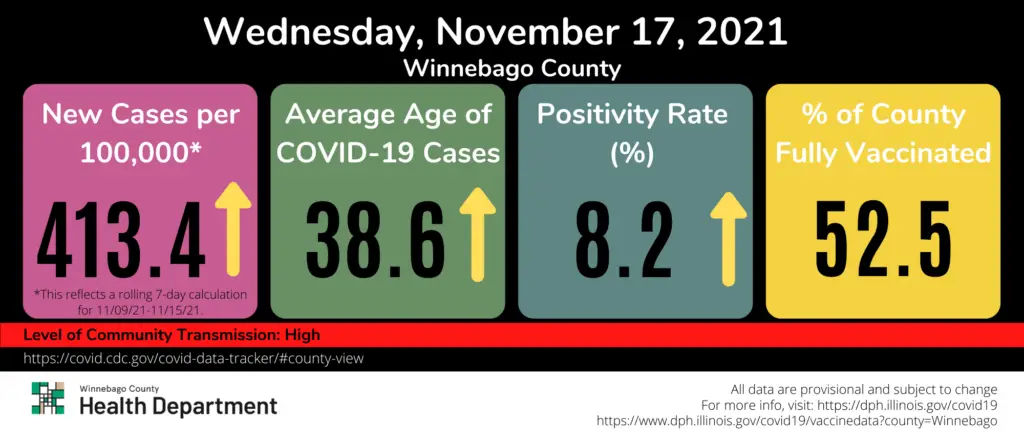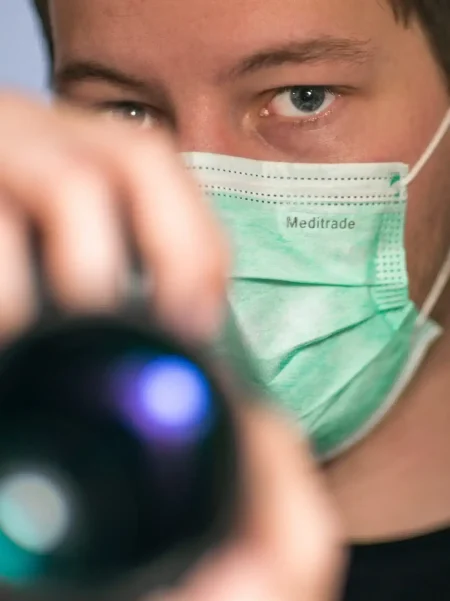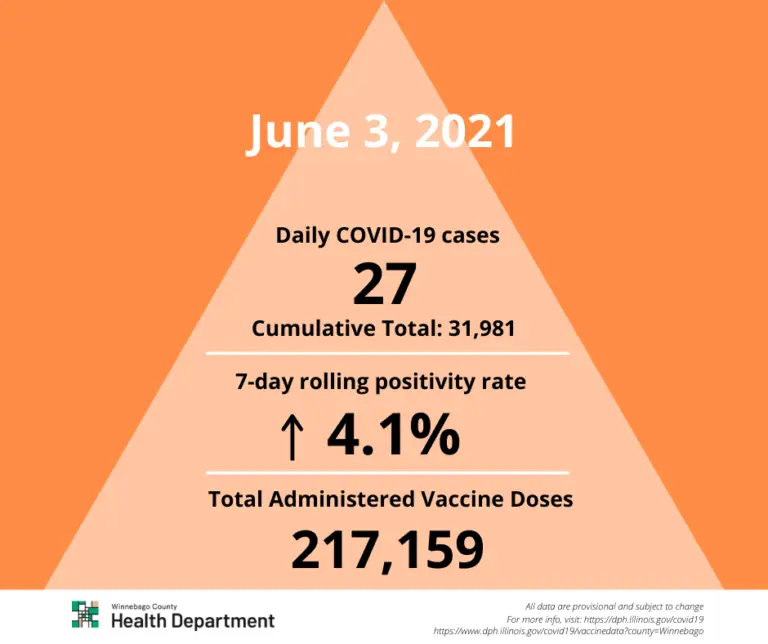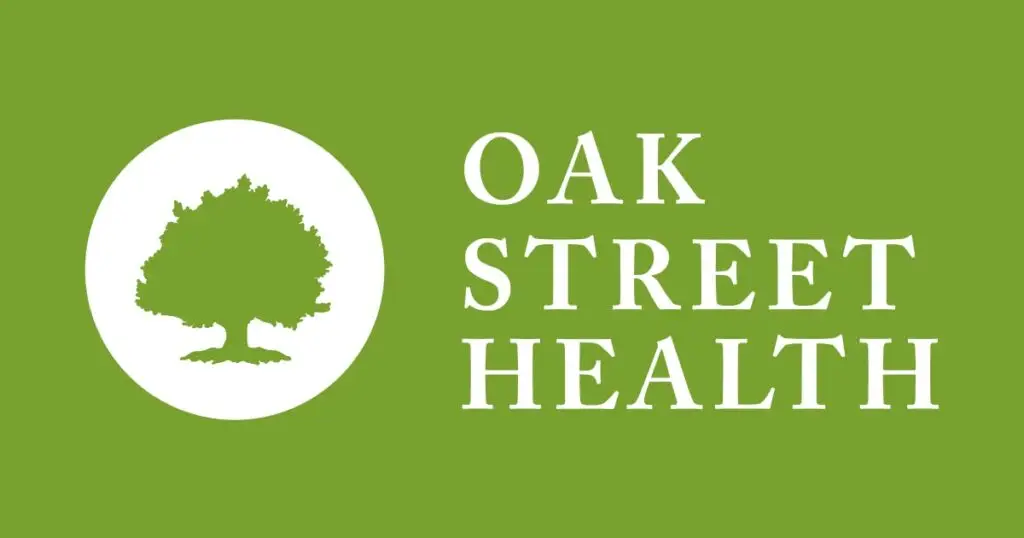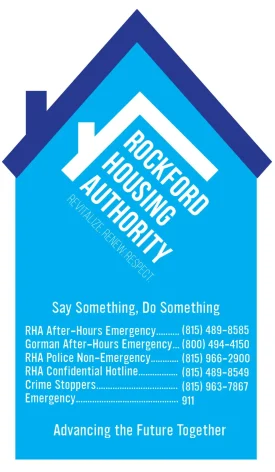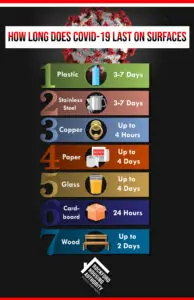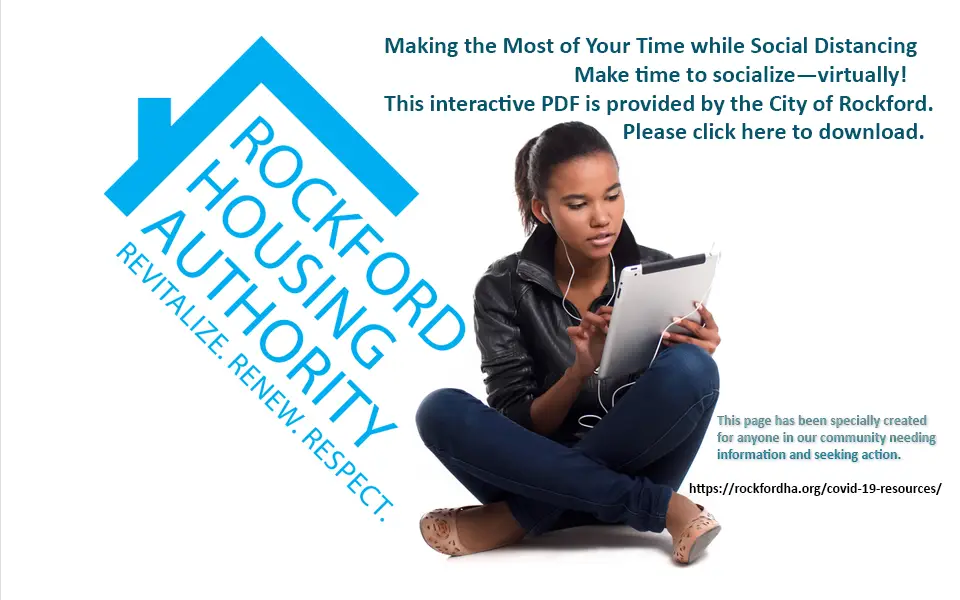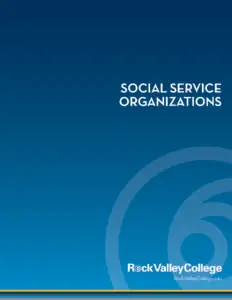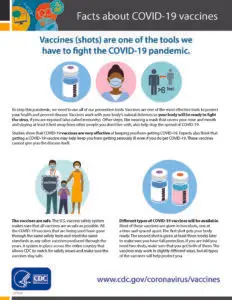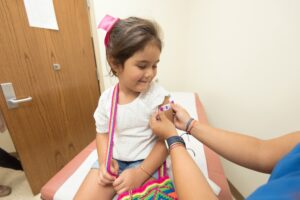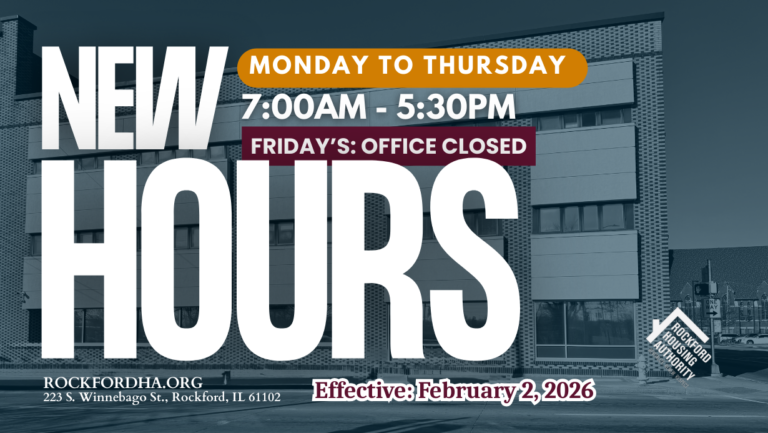Hospitals Get Ready for The Season of Viruses
Hospitals across the nation are bracing themselves for the season of viruses. According to the CDC the yearly Flu Cases are already rising in parts of the U.S. and while COVID-19 is still impacting the world. “If you go around the nation and ask hospitals how busy they are, every single one of them will tell you: They’re busy,” said Dr. Carlos del Rio, an executive associate dean at the Emory University School of Medicine and Grady Health System in Atlanta.
Despite the shortages in the healthcare system like capacity, staffing, and supplies, hospital leaders are saying morale is “actually pretty good,” McDeavitt said. “We’ve moved on from early in the pandemic, wondering if we were going to get sick and potentially die.”
“I think those worries are alleviated,” McDeavitt said. “We know how to handle it now.”
During the winter season, The CDC recommends an annual flu shot for everyone aged 6 months and older. Children younger than age 9 who have never had a flu vaccine, the CDC said, should get two this year, at least four weeks apart and of course getting the COVID-19 vaccine and booster shots.
COVID BOOSTER SHOTS ARE RECOMMENDED
ACCORDING TO A TIME MAGAZINE ARTICLE BY ALICE PARK JULY 13, 2022 9:35 AM EDT
Given the nation’s diminished immunity and current BA.5 surge, more people are wondering whether they should get a booster (or second booster) now, or if they should wait until the fall when a new shot will likely be available. Here’s what to know.
“If you get a booster now, it does reduce your risk of getting infected [with BA.5],” said Dr. Ashish Jha, the White House COVID-19 response coordinator, during the briefing. “It does not drive it to zero, but it reduces that risk. And the data are very clear that if you are over 50, that extra booster dramatically lowers the risk of getting into the hospital, going to the ICU, or dying. There are very few things we do in medicine that have the kind of benefit we see from that extra shot.”
Who should get a booster?
Currently, the U.S. Food and Drug Administration (FDA) and U.S. Centers for Disease Control and Prevention (CDC) recommend one booster shot for everyone ages 5 and older who are five months out from their last COVID-19 vaccine dose, and second booster doses for people ages 50 and older at least four months after their first booster. (Additional boosters are recommended for people with weakened immune systems).
Should people wait for the Omicron booster in the fall?
On June 30, the FDA decided that the next COVID-19 booster needs to target the Omicron subvariants BA.4 and BA.5 specifically, because such a booster would likely increase people’s protection from getting infected with Omicron, and hopefully extend that protection to longer than a few months.
“The threat to you [from BA.5] is now,” said Dr. Anthony Fauci, director of the National Institute of Allergy and Infectious Diseases and the White House’s chief COVID-19 medical officer, in a briefing on July 12. “If you are not vaccinated to the fullest—namely, not gotten boosters according to the recommendations—you are putting yourself at increased risk.”
Getting boosted now “does not preclude you from also getting an [Omicron-specific] booster in the fall,” he added. “If the risk is now, address the current risk.”
You can read the full article here:
https://time.com/6196326/covid-19-booster-get-now-or-fall-omicron/?utm_medium=email&utm_source=sfmc&utm_campaign=newsletter+brief+default+ac&utm_content=+++20220715+++body&et_rid=206756569&lctg=206756569
What are some symptoms of the new Omicron COVID-19 variant?
To be clear, all health officials are in universal agreement — the potential list of symptoms for those affected by an Omicron SARS-CoV-2 infection remains largely the same. Janice Johnston, M.D., co-founder and chief medical officer at Redirect Health, says that the Omicron variant may infect individuals differently, but that it’s not uncommon for subsequent symptoms to be the same as those we’ve seen earlier in the pandemic. “We’ve seen this for years with the influenza virus; every patient is not the same in terms of holistic health, immunity level and ability to fight the virus,” she adds.
While the list of potential symptoms related to Omicron infections is the same, limited data suggests that a few symptoms — chiefly fatigue, feeling overtired or exhausted and pain across multiple muscle groups on the body — are much more common than breathlessness or a loss of taste and smell associated with previous strains of the coronavirus.
But most of the research being presented currently is limited and comes from anecdotes from healthcare providers on the ground in South Africa, explains Nicholas Kman, M.D., an emergency medicine physician at the Ohio State University Wexner Medical Center.
RHA COVID UPDATE MAY 27TH 2022
As we approach Summer, COVID-19 remains a part of our lives. As we shift from a pandemic to an endemic state, we will need to retool to allow us to live with the reality of the virus. As we look to Summer 2022, we are in a much different position than in Spring 2020. Vaccines, boosters, and new viral treatments provide us with tools not at our disposal two years ago. In addition, vigilance with masks remains an integral part of our country’s response. RHA continued to require mask requirements indoors for all staff, community members, and visitors, regardless of vaccination status. I believe it has served our residents and us well.
As the trajectory of the COVID-19 pandemic continues to unfold, government officials at all levels are reevaluating health and safety protocols and adjusting workplace guidance based on the ever-shifting case and vaccination metrics. Therefore, beginning Tuesday, May 31st, 2022, RHA will return to “Business as usual” except for our development community rooms and temperature readings. We will open our office doors to regular business hours. We will resume in-person meetings without occupancy restrictions and lift mask mandates.
Our development community rooms and computer labs will now open at 8:00 am without the restriction of occupancy. However, we will close each room daily at 4:00 pm to allow our maintenance staff to sanitize the space. In doing so, each site will need to ensure that our sanitizing stations remain fully stocked, and we encourage our residents to use the supplies to sanitize areas after use.
RHA offices will be open to the public without the requirement of an appointment, and we will resume regular business hours. All safeguards will remain in place in meeting areas. Because temperatures are not noticeable, we will continue requiring temperature readings when entering our facilities and ask those with a fever not to enter the RHA offices.
As we always have, we encourage you to protect yourself, get vaccinated, and continue wearing your mask. However, most importantly, please stay home if you are not feeling well.
As we have done throughout, we will continue to communicate with the community through periodic messages with updated information as it becomes available. Please also look to RHA’s COVID-19 page for the most current information.
Stay safe, Thank you,
Laura Snyder
Chief Executive Officer
Why You Should Get a Booster Shot
November 19th Dr. Rochelle Walensky, director of the CDC, supported an advisory committee’s advice and expanded the group of people who can now get a COVID-19 Booster shot to include all adults over 18.
Since more people are now eligible to get the booster dose, people question if they need one immediately or if the initial vaccination is no longer working. The CDC states that “all adults who had received the Pfizer-BioNTech or Moderna vaccine are eligible to get a booster at least six months after their second dose.” However, before the CDC made a clear distinction between those over the age of 65 and with underlying health conditions, they said they “should” get a booster shot and those living in high-risk areas who “may” get the booster shot.
Dr. Anthony Fauci tells TIME that “I came down very strongly that I thought saying ‘should’ vs. ‘may’ has done nothing but confuse people,” he says. “If you want people to get a booster, just tell them what to do.”
“Right now, we are facing more than 90,000 new infections a day [on average], we are entering the winter season, and people are gathering for the holidays,” says Dr. Leana Wen, professor of health policy and management at George Washington University. “We know immunity to symptomatic infection wanes substantially at the six-month mark, and immunity even to severe disease wanes too. It’s mind-blowing to me that we cannot just be straightforward with people at this point and say it is essential to get a booster. The CDC playing around with ‘should’ vs. ‘may’ wording has further confused people.”
The urgency to get a booster shot isn’t as great as the urgency to get fully vaccinated. Studies show that the initial doses of all three vaccines continue to protect people from needing to be hospitalized. The agency’s decision to recommend booster shots is because of growing evidence from countries like Israel that infections among vaccinated people are possible and that some people are sick enough to go to the hospital.
The bottom line, getting the booster shot is your choice. It is something that could affect friends and family and be an added layer of protection for yourself. The stigma that the booster shot is somewhat of a luxury and not something people need to get “needs to change urgently,” states Wen.
OCTOBER 26, 2021
U.S. Department of Health and Human Services
If you have a compromised immune system, CDC recommends you get a third dose of mRNA COVID-19 vaccines at least 28 days after your second dose.
Learn About Booster Shots
When searching for a vaccine provider, there is no difference between looking for your first shot or any other doses. That means if you’re eligible, you can get your booster shot anywhere that provides COVID-19 vaccines approved for boosters.
What You Need to Know
COVID-19 Vaccine booster shots are available for the following Pfizer-BioNTech vaccine recipients who completed their initial series at least 6 months ago and are:
Data Supporting Need for a Booster Shot
Studies show that after getting vaccinated against COVID-19, protection against the virus may decrease over time and be less able to protect against the Delta variant. Although COVID-19 vaccination for adults aged 65 years and older remains effective in preventing severe disease, recent data pdf icon[4.7 MB, 88 pages] suggest vaccination is less effective at preventing infection or milder illness with symptoms. Emerging evidence also shows that among healthcare and other frontline workers, vaccine effectiveness against COVID-19 infections is decreasing over time. This lower effectiveness is likely due to the combination of decreasing protection as time passes since getting vaccinated (e.g., waning immunity) as well as the greater infectiousness of the Delta variant.
Data from a small clinical trial show that a Pfizer-BioNTech booster shot increased the immune response in trial participants who finished their primary series 6 months earlier. With an increased immune response, people should have improved protection against COVID-19, including the Delta variant.
ADOLESCENTS AGES 12–18
A new MMWR report finds that for adolescents ages 12–18, two doses of Pfizer-BioNTech Vaccine are 93% effective at preventing COVID-19 hospitalization. These findings show how important vaccination is to protect U.S. adolescents against severe COVID-19. Learn more: bit.ly/MMWR7042e1.
Among hospitalized U.S. patients aged 12–18 years, vaccine effectiveness of 2 doses of Pfizer-BioNTech vaccine against COVID-19 hospitalization during June–September 2021, was 93% (95% confidence interval = 83%–97%).
What are the implications for public health practice?
This evaluation demonstrated that 2 doses of Pfizer-BioNTech vaccine were highly effective in preventing COVID-19 hospitalization among persons aged 12–18 years. Findings reinforce the importance of vaccination to protect U.S. youths against severe COVID-19.
CDC COVID-19 Community Level
Winnebago County is now at HIGH Community level.
Wear A Mask while in public indoor settings, regardless of your vaccination status
Avoid Crowded Indoor Settings.
- Stay Up to Date on
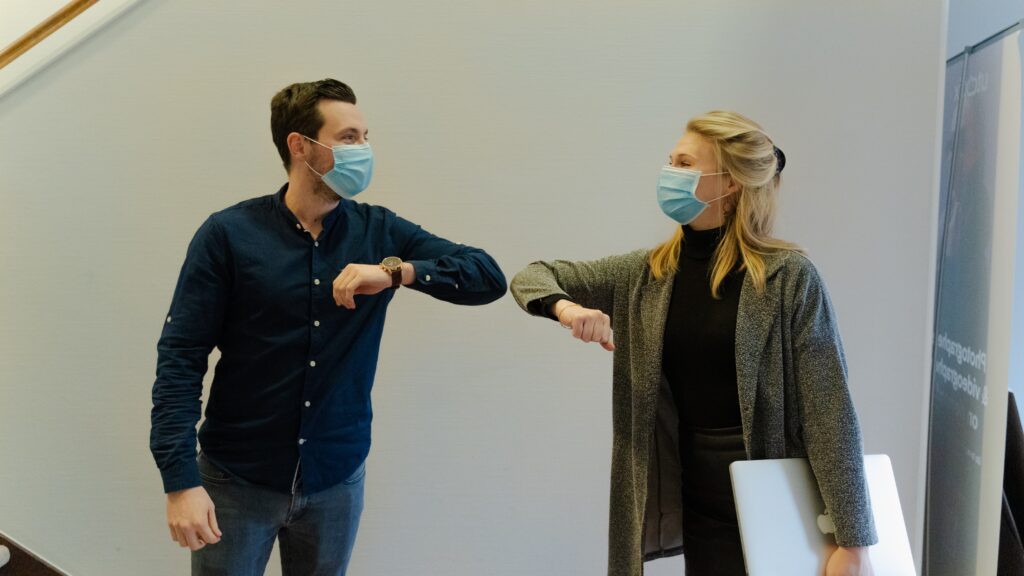 your vaccinations: it is important to get your COVID-19 vaccination and your eligible booster shots
your vaccinations: it is important to get your COVID-19 vaccination and your eligible booster shots - Know Your Risk and Plan Ahead. For those who are at higher risk of getting realy sick from COVID-19, talk to your healthcare provider about
- if you need to wear a mask or a respirator in public indoor settings
- treatment available through your healthcare provider or test-to-treat locations if you do test positive for COVID-19
Why is the Community Level High?
The Community Level is high because the levels of COVID-19 hospitalizations, cases, and patients in hospital beds are a strain for the local health system. Learn more about COVID-19 Community Levels
Test Positive, Get Treatment
- Talk with your healthcare provider as soon as possible to see if you are eligible for one of the COVID-19 treatment
- You must start treatment within a few days after symptoms start, so do not wait, contact your healthcare provider or go to a Test to Treat Site promptly.
Governor JB Pritzker officially reinstated an indoor mask mandate, regardless of vaccination status, today during a news conference in Chicago. The mandate will start Monday, August 30th 2021. Please view this link to see the full conference: https://illinoisnewsroom.org/press-briefing-on-covid-19/
COVID-19 Status In Winnebago County
COVID-19 Status In Winnebago County
- Community spread of COVID-19 remains a concern.
- The State of Illinois is currently in Phase 5. Click here for guidance.
- Due to the substanial level of community transmission of COVID-19, WCHD recommends:
- Everyone, regardless of vaccination status, wear a mask while indoor public settings.
- Businesses and public venues require UNIVERSAL INDOOR MASKING of their staff and patrons regardless of vaccination status
- Take steps to protect yourself and your family from COVID-19
- Get vaccinated. Click here to schedule your COVID-19 Vaccine.
- Wear a face covering when in public indoor settings
- Watch your distance (Stay apart 6ft. and avoid large gatherings and crowded places)
- Wash your hands
- Delay travel until fully vaccinated
RHA WILL CONTINUE COVID 19 PROTOCOL FOR SOCIAL DISTANCING AND MASK MANDATES ON ALL RHA PROPERTIES
While the State of Illinois Phase 5 is set to mark a full reopening beginning on June 11, not all restrictions will be lifted. The State will lift its outdoor mask requirement for schools in line with the U.S. Centers for Disease Control and Prevention guidance. Fully vaccinated people should continue to get tested if experiencing COVID-19 symptoms.
The State has also advised that businesses and other venues should continue to allow for social distancing to the extent possible, especially indoors. Businesses and venues may also continue to put in place additional public health mitigations as they deem appropriate, including requiring face coverings. This means wearing masks or physically distancing, where federal, state, local, tribal, or territorial laws, rules, and regulations are required, including local business and workplace guidance. “While the updated guidance from the CDC is welcome news, let me remind everyone that this guidance is only for those people who are fully vaccinated,” said IDPH Director Dr. Ngozi Ezike. “Individuals who do not have the protection afforded by one of the safe and effective COVID-19 vaccines should still wear a mask.”
To protect the health and continued welfare of the Rockford Housing Authority’s employees, residents, and guests, RHA will continue Covid 19 protocols for social distancing and mask mandates on all RHA Properties. Many of our residents are elderly and still at risk. Covid 19 best practices will be applied in common areas such as reception areas, community rooms, conference rooms, restrooms, and line/queuing until further notice.
While removing occupancy limits and other rules represents a step forward in the COVID pandemic, state officials have continued to caution all residents that it is possible for the State to move back to previous phases.
THREE FAQ’s, COVID-19 and Masks
Illinois loosens mask restrictions, now in line with CDC
Illinois News
Gov. Pritzker Aligns Illinois Mask Guidance with CDC for Fully Vaccinated People
Administration to Rescind Emergency Public Health Rules Following New CDC Guidance; CDC: Fully Vaccinated People No Longer Need to Wear a Mask in Most Instances or Practice Social Distancing
Monday, May 17, 2021 – the Governor of the State of Illinois.
SPRINGFIELD – Following guidance from the CDC that fully vaccinated people can stop wearing a mask and practicing social distancing in most indoor and outdoor settings, Governor JB Pritzker and the Illinois Department of Public Health have announced that Illinois will align state executive orders with the latest CDC guidance and rescind IDPH emergency rules enforcing masking and distance.
The CDC continues to require masks for everyone in healthcare settings, in congregate settings and on transit. In addition, in line with CDC guidance, the Illinois State Board of Education and Illinois Department of Public Health require masks in schools. The Illinois Department of Children and Family Services requires masks in daycare.
“Getting vaccinated is the ultimate protection from COVID-19 and the quickest ticket back to normal life,” said Governor JB Pritzker. “With public health experts now saying fully vaccinated people can safely remove their masks in most settings, I’m pleased to follow the science and align Illinois’ policies with the CDC’s guidance. I also support the choice of individuals and businesses to continue to mask out of an abundance of caution as this pandemic isn’t over yet.”
“While the updated guidance from the CDC is welcome news, let me remind everyone that this guidance is only for those people who are fully vaccinated,” said IDPH Director Dr. Ngozi Ezike. “Individuals who do not have the protection afforded by one of the safe and effective COVID-19 vaccines should still wear a mask. While more than 64% of adults in Illinois have received at least one dose of a COVID-19 vaccine, we need to increase that number. To slow down disease spread and the development of even more deadly variants, we need as many people as possible to be vaccinated.”
The Governor is issuing an updated executive order to remove the mask requirement for fully vaccinated people in most settings, and the Illinois Department of Public Health is rescinding emergency rules in the Control of Communicable Disease Code that enforce masking and distancing for vaccinated people in business settings. In line with CDC guidance, individuals who are unvaccinated should continue wearing masks in most settings and both vaccinated and unvaccinated individuals should continue to wear masks on public transportation, in congregate facilities, and in healthcare settings.
As of today, more than 4.8 million Illinoisans are fully vaccinated, and 58% of residents 16+, 64% of residents 18+ and 86% of residents 65+ have received their first dose.
LATEST CDC GUIDANCE
The CDC still recommends that unvaccinated people continue to take preventive measures, such as wearing a mask and practicing social distancing. In their latest guidance, the CDC now reports that indoor and outdoor activities pose minimal risk to fully vaccinated people and that fully vaccinated people have a reduced risk of transmitting SARS-CoV-2 to unvaccinated people.
Fully vaccinated people can:
- Resume activities without wearing masks or physically distancing, except where required by federal, state, local, tribal, or territorial laws, rules and regulations, including local business and workplace guidance
• Resume domestic travel and refrain from testing before or after travel or self-quarantine after travel
• Refrain from testing before leaving the United States for international travel (unless required by the destination) and refrain from self-quarantine after arriving back in the United States
• Refrain from testing following a known exposure, if asymptomatic, with some exceptions for specific settings
• Refrain from quarantine following a known exposure if asymptomatic
• Refrain from routine screening testing if feasible
For now, fully vaccinated people should continue to:
- Get tested if experiencing COVID-19 symptoms
• Follow CDC and health department travel requirements and recommendations
While the state is loosening restrictions, RHA is not. When in a communal area, masks must be worn appropriately at all times and social distancing needs to be maintained.

